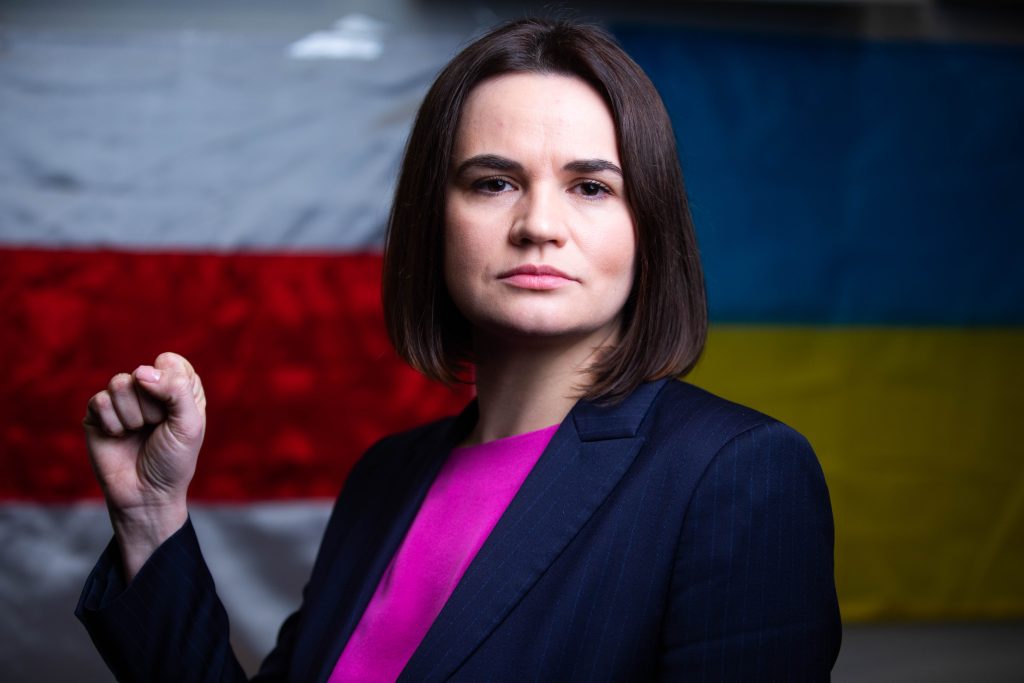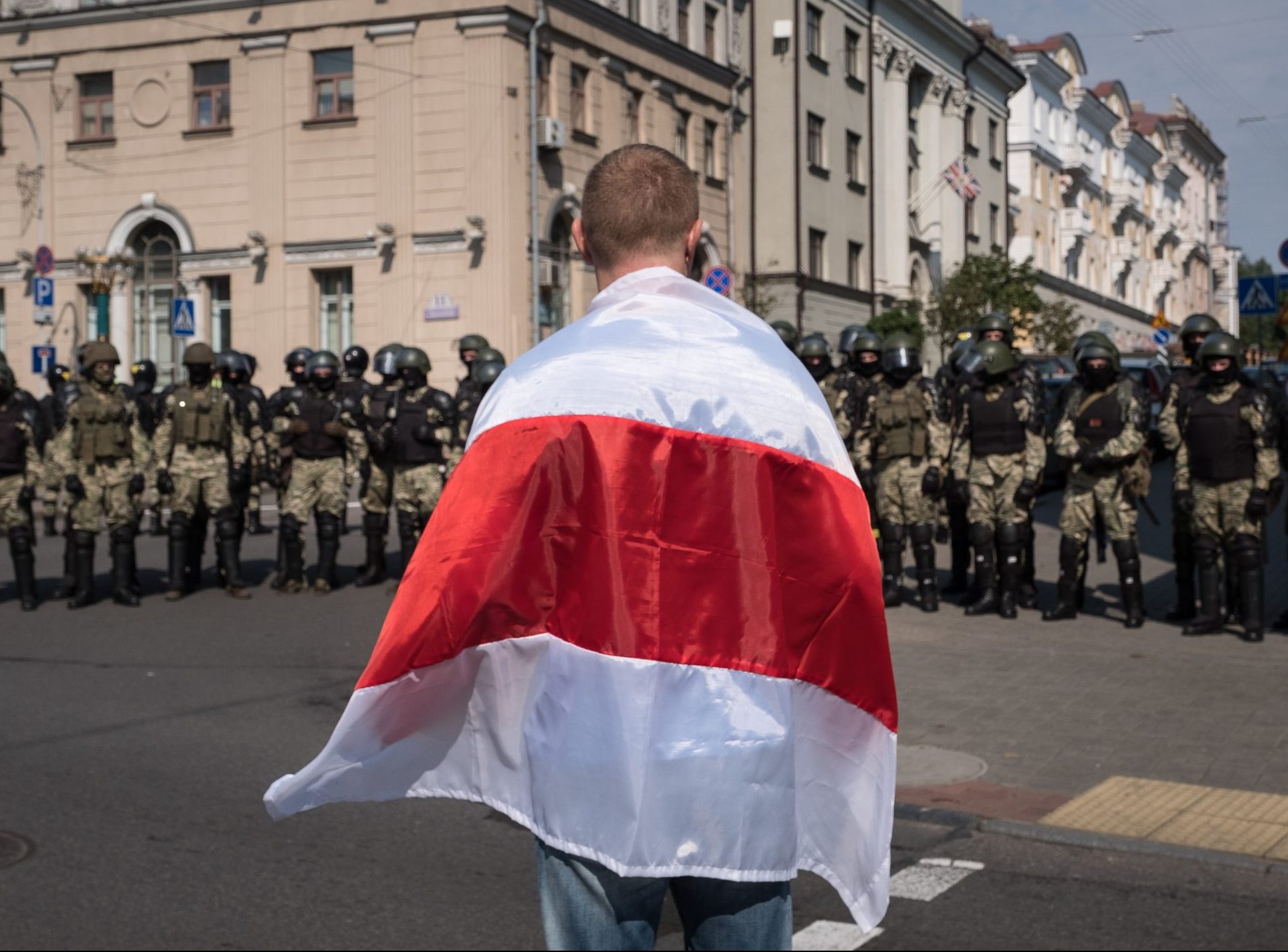The Domino Theory Is Coming for Putin
A series of setbacks for Russia is only gaining momentum.
By Casey Michel, head of the Human Rights Foundation's Combating Kleptocracy Program and author of American Kleptocracy: How the U.S. Created the World’s Greatest Money Laundering Scheme in History.
For many, the daily news out of Ukraine paints a dour picture of Kyiv’s future. Russian troops continue to grind forward, sacrificing themselves by the tens of thousands for the sake of seizing more and more Ukrainian land. Dreams of a potential Ukrainian counteroffensive are long gone, with calls in the West for everything from Ukrainian neutrality to recognizing Russian sovereignty on stolen Ukrainian lands picking up steam.
These views aren’t without some merit. But they risk missing the forest of the daily news cycle for the trees of where we are—and just how battered and bloodied Russia truly is. On the economic front, Russia has seen both soaring interest rates and galloping inflation, providing a toxic brew of stagflation, from which there’s little likelihood of escape. On the manpower front, Russian President Vladimir Putin is so skittish of a potential new round of mobilization that he’s forced to rely on North Korean conscripts. And on the tactical front, Putin is no closer to Ukrainian collapse than he was in early 2022. He has created for himself, as scholar Michael Kimmage described, a “nightmare,” with only disastrous choices remaining, both for Putin’s rule and for Russian strategic interests writ large.
Indeed, it is the latter point that presents the greatest evidence of Putin’s disastrous turn and perhaps the greatest, or at least the most overlooked, suite of opportunities for Western policymakers. Few have made the connection, but a clear trend line has emerged over the past few years. Thanks to Putin’s monomaniacal fixation on Ukraine, he has been willing to sacrifice other geostrategic projects elsewhere, unwilling to step into the breach to help what had previously been key Russian interests. We’ve started to see a Russian variant of a domino theory emerge—one that has begun gutting Russian interests elsewhere, and illustrating, as few other things can, just how atrophied Russian power projection has become.
The first domino to fall came in 2023, when troops from Azerbaijan stormed into the separatist enclave of Nagorno-Karabakh, forcing ethnic Armenians to flee en masse. Rather than being the supposed guarantor of stability—and a key security partner of Armenia, which backed Nagorno-Karabakh for decades—Russia wilted in the face of Azerbaijan’s push. Tucking tail, Russian troops left the region entirely, scuttling a military base where nearly 2,000 Russian troops had once been deployed.
A year later, the next domino toppled. With the ousting of President Bashar al-Assad in Syria, Russia not only lost its key regional ally, but watched as its primary claim as a security guarantor for autocratic regimes disintegrated. Rather than act as a swaggering great power that could shore up illiberal leaders, Moscow was suddenly outed as a government that could do neither.
Both developments—the disappearance of Nagorno-Karabakh and the dissolution of Assad’s regime—are downstream from Putin’s overwhelming focus on subjugating Ukraine, regardless of the cost. All of which begs a pair of questions: Given that he’s been completely consumed by this messianic obsession with Ukraine, which pro-Russian domino will be the next to fall? And how can Western policymakers be ready to take full advantage?
Start with the oldest Russian-backed enclave there is: Transnistria. A sliver of eastern Moldova, Transnistria has been occupied by Russian troops since the earliest days of the post-Soviet era. If anything, the recalcitrance to find a solution to Transnistria was something of an “original sin” for Western policymakers, unwilling as they were to face the realities and reverberations of Russian imperialism, long before Putin set his sights on Ukraine. By the late 1990s, it was clear that Russian promises to remove Moscow’s troop presence from Moldova—and to finally end the Kremlin’s willingness to carve up a separate, sovereign country in the middle of Europe—were hardly credible. By and large, the West looked the other way, letting this blindingly, breathtakingly obvious example of Russian revanchism fester.
Now, though, it is Moscow’s relations with Transnistria that are suddenly in question. Earlier this year, Moscow cutting off its gas line to Europe left the entire region in, quite literally, the dark. While there has been some progress in restoring energy capacity, sudden chatter has emerged about the potential “collapse” of Transnistria wholesale and what that means for Moldova and the rest of the region more broadly. The West has been almost entirely absent from the conversations about potential solutions, let alone what this may mean strategically—a bizarre absence, given Transnistria’s border with Ukraine and the clear designs that Moscow has on eventually linking its Ukrainian gains with its Moldovan holdings.
Elsewhere, Georgia remains mired in a domestic political contretemps worse than anything the country has seen in years. After recent parliamentary elections—broadly viewed as fraudulent—the pro-Russian Georgian Dream party claimed victory, and with it, the right to thwart Tbilisi’s pro-Western direction. The stolen vote was the culmination of a longer trajectory, with the party’s leadership dismantling the underpinnings of Georgian democracy. Similar to the descent of Ukrainian democracy seen under former leader Viktor Yanukovych, whose pro-Kremlin sympathies resulted in Ukraine’s 2014 Maidan Revolution, Georgian Dream’s lurch toward authoritarianism has resulted in the kinds of protests that increasingly resemble those that toppled Yanukovych.
Meanwhile, it is in Belarus that we can find the West’s greatest blind spot—and, arguably, the greatest pressure point for testing just how weak Moscow’s reach and influence is now. In 2020, pro-democratic protests erupted across the country, presenting the greatest threat to the decades-long rule of Belarusian despot Aleksandr Lukashenko. However, in one of the greatest (and most overlooked) foreign-policy failures of U.S. President Donald Trump’s first administration, Washington did little to back the democratic protesters and instead ceded all influence to Moscow. As such, when it appeared that Lukashenko was on his last legs, Putin interceded, reinforcing the regime and restoring the rule of one of Moscow’s longtime clients. Years later, Lukashenko remains in power, and Belarus remains a key staging ground for Moscow’s ongoing assaults on Ukraine.
Now, Belarus faces yet another inflection point. On Jan. 26, another election in Belarus assured Lukashenko’s regime of another term in office—or so the dictator hopes. After all, it was the immediate aftermath of Belarus’s previous election, without even the pretense of fairness or freedom, that unexpectedly jump-started the country’s 2020 protests. While the regime has arrested tens of thousands since, that’s hardly a guarantee of post-election stability this time around. If anything, with Belarus’s opposition far more organized and far more committed than even five years ago, Lukashenko can hardly be sure that this won’t be his last thieved election—especially with his primary patron completely distracted and increasingly drained.
All these developments—Transnistria going dark, Georgia turning turbulent, and Belarus once again facing the same ingredients that sparked its largest pro-democracy protests just a few years ago—would be newsworthy on their own. But it’s the fact that the primary backer of Transnistria separatists, Georgian illiberals, and Lukashenko’s regime are suddenly watching their external influence erode that presents new opportunities for the West, if only Brussels, London, and Washington take advantage.
Indeed, it is somewhat shocking that the West hasn’t sketched out a better strategy for the broader region in recent months. The European Union has continued encouraging Moldova’s pro-EU direction, but the West remains effectively a nonactor when it comes to things like Transnistria. In Georgia, the United States recently sanctioned Bidzina Ivanishvili, the architect of the country’s democratic decline, but it’s clear that there’s little strategy beyond these kinds of individual responses. And Belarus, meanwhile, is effectively a black hole of policy analysis, even for the new administration in Washington. Reams of paper have been produced on new U.S. strategy regarding Ukraine, Russia, and Europe, but there’s been precisely nothing written on Belarus, which appears to be a complete vacuum of strategic thinking.
And that’s all a shame and an opportunity foregone. After all, it’s not just people like Assad suddenly learning that Putin’s support apparently comes with an expiration date. Transnistria separatists, Georgia’s budding autocrats, Belarus’s thug-in-chief—all of them have suddenly realized that Putin’s backing, even for them, isn’t bottomless. As they’ve seen, the Russian president will always, always prioritize Ukraine over Russian interests elsewhere, including client regimes and kleptocratic allies along Russia’s other borders.
This is, of course, a trend that has been years in the making. For over a decade, Putin has prioritized subjugating Ukraine over Moscow’s other key strategic goals, dating all the way back to the creation—and immediate implosion—of the Russia-led Eurasian Economic Union. In the years since, Putin has prioritized the gelding of Ukraine over everything from a viable economy to stable relations with the West, even to the point of risking regime stability itself. Indeed, at this point, it’s fair to say that Putin may well choose domination of Ukraine over even places like Sakha or Chechnya, both of which remain part of the Russian Federation for the time being but have clear histories as separate, sovereign states—one of the primary reasons that Russia’s territorial stability is hardly guaranteed, or why, as the Economist said, Putin is “turning Russia into a failed state.”
Questions and crises of Russia’s internal stability are still a ways off. But that is, ultimately, where this accelerating collapse of dominoes is heading. That is all the more reason the West must begin formulating policy not just on the next dominoes to fall—places like Transnistria, Georgia, and even Belarus—but also on what a post-Putin Russia may well, and should, look like. After all, once they start tumbling, dominoes have a way of continuing to fall. The West should be ready.
Casey Michel is head of the Human Rights Foundation's Combating Kleptocracy Program and author of American Kleptocracy: How the U.S. Created the World’s Greatest Money Laundering Scheme in History. X: @cjcmichel





